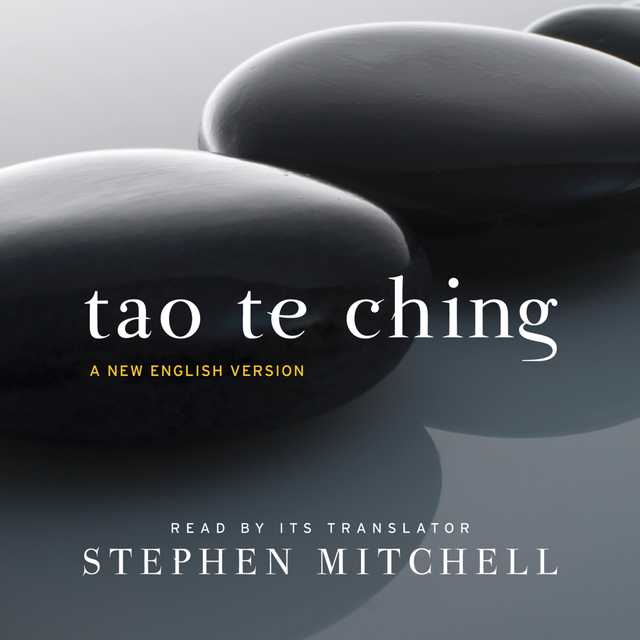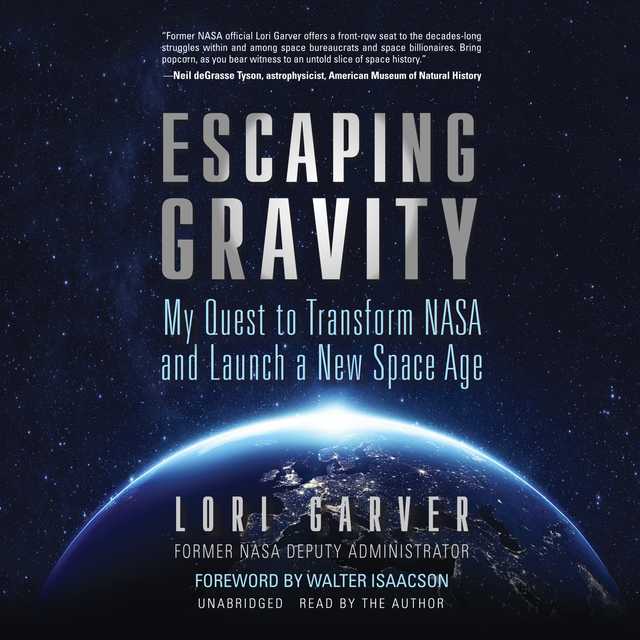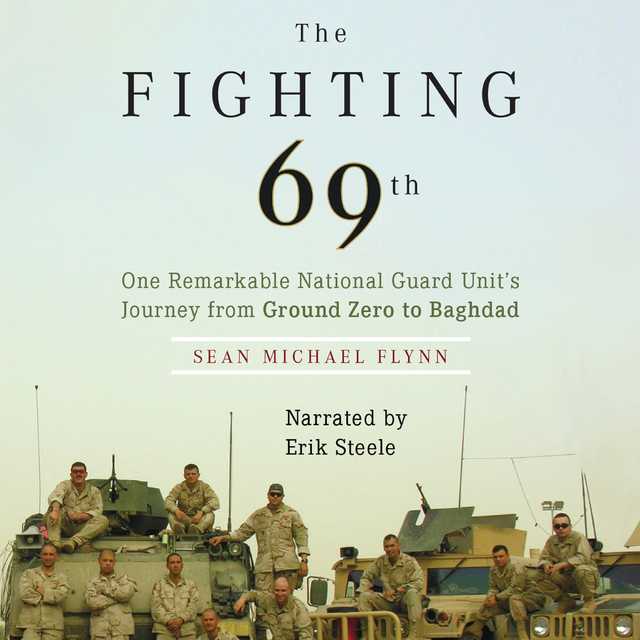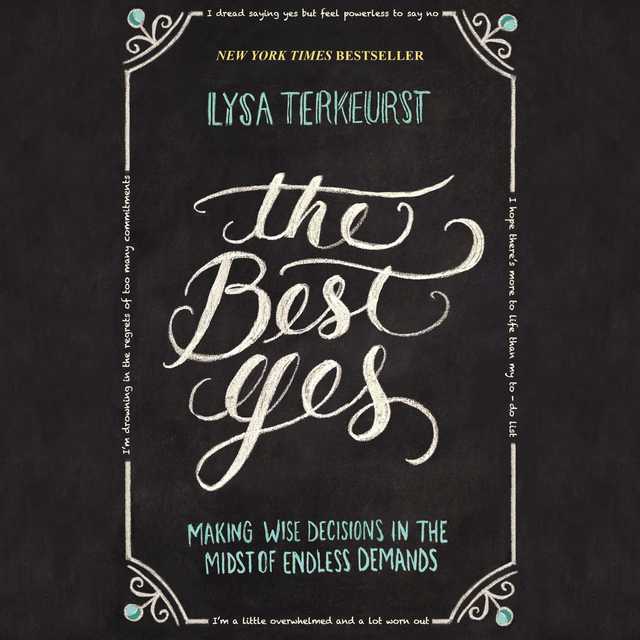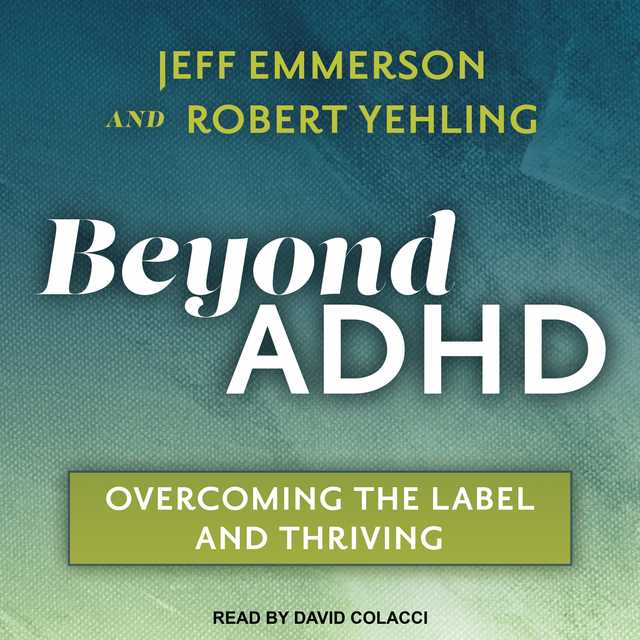Tao Te Ching Audiobook Summary
In 81 brief chapters, Lao-Tzu’s Tao Te Ching, or Book of the Way, provides advice that imparts balance and perspective, a serene and generous spirit, and teaches us how to work for the good with the effortless skill that comes from being in accord with the Tao–the basic principle of the universe.
Stephen Mitchell’s bestselling version has been widely acclaimed as a gift to contemporary culture.
Other Top Audiobooks
Tao Te Ching Audiobook Narrator
Stephen Mitchell is the narrator of Tao Te Ching audiobook that was written by Stephen Mitchell
Stephen Mitchell’s many books include the bestselling Tao Te Ching, Gilgamesh, and The Second Book of the Tao, as well as The Selected Poetry of Rainer Maria Rilke, The Gospel According to Jesus, Bhagavad Gita, The Book of Job, and Meetings with the Archangel.
About the Author(s) of Tao Te Ching
Stephen Mitchell is the author of Tao Te Ching
More From the Same
- Author : Stephen Mitchell
- The Second Book of the Tao
- The First Christmas
- Beowulf
- Gilgamesh
- Joseph and the Way of Forgiveness
- Publisher : HarperAudio
- Abraham
- American Gods [TV Tie-In]
- Dead Ringer
- House of Sand and Fog
- Prey
Tao Te Ching Full Details
| Narrator | Stephen Mitchell |
| Length | 1 hours 41 minutes |
| Author | Stephen Mitchell |
| Category | |
| Publisher | HarperAudio |
| Release date | April 17, 2007 |
| ISBN | 9780061449529 |
Subjects
The publisher of the Tao Te Ching is HarperAudio. includes the following subjects: The BISAC Subject Code is Inspirational & Religious, Poetry, Subjects & Themes
Additional info
The publisher of the Tao Te Ching is HarperAudio. The imprint is HarperAudio. It is supplied by HarperAudio. The ISBN-13 is 9780061449529.
Global Availability
This book is only available in the United States.
Goodreads Reviews
Gerry
June 28, 2007
I'm an unbeliever and have been since the first time I played hooky from Sunday services and the Eye in the Sky didn’t say boo. So it may seem strange that I’m reviewing the Tao Te Ching, the widely known and influential Taoist text, written by Lao-Tzu and poetically translated in this edition by Stephen Mitchell. For me, the Tao Te Ching is more folk wisdom than religious treatise and is more useful than a million sermons.Where the Tao Te Ching parts company with religious attempts at morality such as the 10 Commandments is in its inclusiveness. Seven of the 10 Commandments don’t mention God and are sound advice designed to facilitate peaceful community relations: respect your elders, don't kill, don't cheat on your spouse, don't steal, don't tell lies, and don't lust after another's spouse or his belongings. For me, the tragedy of the Great List is that the three that top it serve only to divide the world into believers and nonbelievers: regardless how closely you follow the last seven, if you don’t believe in God you’re not worth a fig. In doing so the first three create division where the last seven seek harmony. With Taoism, even if you don’t believe in the Force-like nature of the Tao—and in case there’s any question, I don’t—you can still consider yourself a Taoist.Taoism seeks harmony by freeing the individual from the caustic effects of judgmental thinking, desire, and greed, and its fulcrum is the concept of “non-action,” or literally “doing not-doing.” Non-action, Mitchell writes in his introduction, is not the act of doing nothing but instead is the purest form of action: “The game plays the game; the poem writes the poem; we can’t tell the dancer from the dance.”This slim book is both a quick read and a long study. Mitchell’s lyrical rendering of the Tao Te Ching might read to some like silly hippie clichés, but there’s more to it than that. Take chapter 9, a photocopy of which hung on my office corkboard for years:Fill your cup to the brim and it will spill.Keep sharpening your knife and it will blunt.Chase after money and security and your heart will never unclench.Care about people’s approval and you will be their prisoner.You can almost see the hacky sack and smell the patchouli. But there’s a truth to it that, if grasped, will change the way you think.As chapter 1 states: “The tao that can be told is not the eternal Tao./The name that can be named is not the eternal Name.” Analogy, then, plays an important role in understanding the Tao Te Ching, and the reader has to do quite a bit of work—the long study part—to fathom the book’s richness. Take chapter 11 in its entirety, where non-action is discussed:We join spokes together in a wheel, but it is the center hole that makes the wagon move.We shape clay into a pot, but it is the emptiness inside that holds whatever we want.We hammer wood for a house, but it is the inner space that makes it livable.We work with being, but non-being is what we use.There is more to the book than philosophical abstraction. In fact, common sense pervades the Tao Te Ching. Take these lines, which discuss the roots of crime: “If you overvalue possessions, people begin to steal” (chapter 2) and “If you don’t trust the people you make them untrustworthy” (chapter 17). Or these, from chapter 38, which describe the toll of illusory thought: When the Tao is lost, there is goodness.When goodness is lost, there is morality.When morality is lost, there is ritual.Ritual is the husk of true faith,The beginning of chaos.Therefore the Master concerns himself with the depths and not the surface,With the fruit and not the flower.He has no will of his own.He dwells in reality, and lets all illusions go.I’m telling you, had I been born into Taoism I might actually believe in something.
Ahmad
September 24, 2021
Tao Te Ching, Lao Tzu The Tao Te Ching, also known by its pinyin romanization Dao De Jing, is a Chinese classic text traditionally credited to the 6th-century BC sage Laozi. The text's authorship, date of composition and date of compilation are debated. The oldest excavated portion dates back to the late 4th century BC, but modern scholarship dates other parts of the text as having been written—or at least compiled—later than the earliest portions of the Zhuangzi. The Tao Te Ching, along with the Zhuangzi, is a fundamental text for both philosophical and religious Taoism. It also strongly influenced other schools of Chinese philosophy and religion, including Legalism, Confucianism, and Buddhism, which was largely interpreted through the use of Taoist words and concepts when it was originally introduced to China. Many Chinese artists, including poets, painters, calligraphers, and gardeners, have used the Tao Te Ching as a source of inspiration. Its influence has spread widely outside East Asia and it is among the most translated works in world literature. The highest good is like water. Water gives life to the ten thousand things and does not strive. It flows in places men reject and so is like ... In action, watch the timing. No fight: No blame. Lao Tzu تاریخ نخستین خوانش: روز سوم ماه آگوست سال 2012میلادیعنوان: استاد پیر: تائوته چینگ، یا، کتاب پیروی مستقیم از راه و روش هستی و حیات با راهنمائی درک درونی (دل)؛ نویسنده: لائو تزو؛ مترجم: مهدی ثریا؛ نشر قوانین، 1373؛ در 107ص؛ موضوع نوشتارهای نویسندگان چین - سده شش پیش از میلادعنوان: تائو ته چینگ؛ نویسنده: لائو تزو؛ مترجم: امیرحسن قائمی؛ ویراستار ایوب کوشان؛ تهران، چاپ مترجمها، 1379؛ در 109ص؛ شابک9643506967؛ عنوان: تائو ته چینگ؛ نویسنده: لائو تزو؛ مترجم: فرشید قهرمانی؛ تهران، سیاه مشق، 1382؛ در 81ص؛ شابک 9649447229؛ چاپ دیگر تهران، مثلث، 1383؛ چاپ سوم 1386؛ شابک 9648496064؛ چاپ چهارم 1386؛ پنجم و ششم 1387؛ هفتم و هشتم 1388؛ نهم 1389؛ یازدهم 1390؛ دوازدهم 1391؛ سیزدهم تا پانزدهم 1392؛ شابک 9789648496062؛ موضوع راهنمای هنر زندگی از نویسندگان چینی - سده 6پیش از میلاد مترجمهای دیگر آقایان: اردلان عطارپور؛ محمدرضا چنگیز؛ سید حسین نصر؛ این متن کهن را، به «لائو تزو» یا «لائو دزو» نسبت داده اند، «لائو تزو»، ششصد سال پیش از میلاد مسیح، و همزمان با «کنفوسیوس»، میزیسته است؛ «لائو تزو» همان مرشد، پیر، یا استاد هستند؛ تاریخنگار، و کتابدار دربار امپراطوری «جو»، بوده اند، و تنها همین کتاب، از ایشان به یادگار مانده؛ راهنمای هنر زندگی، و خرد ناب است؛ گفته اند: «لائو تزو» یک زندگی ساده، و هماهنگ با طبیعت، داشته اند، که همان پیام «تائو» میباشد، عمری دراز زیسته اند، گویا بین یکصد و شصت تا دویست سال زیسته باشند؛ ...؛ نقل از متن: خوب همانند آب است، بدون تلاش همه را سیراب میکند، جمع شدن در گودها را کوچک نمیشمارد؛ پایان نقلتاریخ بهنگام رسانی 02/09/1399هجری خورشیدی؛ 02/07/1400هجری خورشیدی؛ ا. شربیانی
Burt
March 13, 2010
This is, by far, my favorite translation of the Tao Te Ching. I own a few others and they're all well and good, but this one is the one I continually read from and refer to when people ask me about the Tao.The translation is well done, it captures the nature of the text well, and it flows fairly evenly. It's not overly flowery or ornate, it gives you the basics of what you need to understand the various entries and assist in understanding what Tao is (i.e. the the Tao named Tao is not the great, eternal Tao).It's a book that changed my life. I learned of Taoism in a world history class in high school, and when my friends took their Philosophy 101 course at the local university this was the text they worked with. My copy came second hand from the U's bookstore and I have had it ever since. It has taught me to understand a lot of the things in the world that otherwise would baffle me and lends a lot to my own personal philosophies.I highly recommend this book to anyone who is lost on their path through life. It doesn't have all of the answers, but it does have a LOT of perspective.
Tanu
January 08, 2023
"If you realize that all things change, there's nothing you will try to hold on to." Things arise and she lets them come;things disappear and she lets them go.She has but doesn't possessacts but doesn't expect.The Tao Te Ching clarifies the concepts of Taoism, an ancient school of philosophy that continues to be relevant today. In the 6th century BCE, Lao Tzu created Taoism, passed down through the generations.This book definitely is not a one-time read. Something to keep coming back to once in a while. It is poetry to the soul and mind. Grab your copy here.
Farhan
February 08, 2021
When people see things as beautiful, ugliness is createdWhen people see things as good, evil is createdThe master leads by emptying people's mindThe Tao is like an empty vesselIt can never be emptied and can never be filledMaster doesn’t take sidesThe spirit of emptiness is immortalThe location makes the dwelling goodDepth of understanding makes the mind goodA kind heart makes the giving goodIntegrity makes the government goodAccomplishment makes your labors goodProper timing makes a decision goodCan you love people and lead them without forcing your on them?To grow, yet not to control: This is the mysterious virtueToo much activity dangers the mindToo much wealth causes crimeSuccess is as danger as failureLove the whole world as if it were your selfThen you will truly care for all thingsLook for it, and it can't be seenListen for it, and it can't be heardGrasp for it, and it can't be caughtUnending, unnamable, it return to nothingnessFormless forms, imageless imagesSubtle, beyond all understandingReturning to the resource is tranquilityIf you want to become whole first let yourself become brokenIf you want to become straight, first let yourself become twistedIf you want to become full, first let yourself become emptyIf you want to become new, first let yourself become oldBefore the universe was bornThere was something in the chaos of the heavenThe Tao follows only itselfA good traveler leaves no tracksKnow the masculine but keep to the feminineSome are meant to lead and others are meant to followThe Master accepts the things as they areThose who know others are intelligentThose who know themselves are truly wiseThose who master other are strongThose who master themselves have true powerAll of creation is born from substanceSubstance is born of nothing-nessFew in the world can comprehend the teaching without wordsWhich is more destructive, success or failure?To understand the small is called clarityKnowing how to yield is called strengthThose who know do not talkThose who talk do not knowAct by not actingDo by not doingA journey of thousand miles starts with a single footstepIf you rush into action, you will failIf you hold on too tight, you will lose your gripCompassion is the protector of Heaven's salvation
Krystal
September 24, 2018
A short read but worth taking the time with.I really enjoyed mulling over the short passages, and taking the time to re-read them and really think about what the words meant. So many incredibly great lines, full of inspiration.It will confuse people looking for face-value prose but for the deep thinkers this will really challenge you to think about life in all its intricacies, and to question your own nature. Great read.Highly recommend for the more spiritually inclined, or those looking for purpose/life meaning.
Frequently asked questions
Listening to audiobooks not only easy, it is also very convenient. You can listen to audiobooks on almost every device. From your laptop to your smart phone or even a smart speaker like Apple HomePod or even Alexa. Here’s how you can get started listening to audiobooks.
- 1. Download your favorite audiobook app such as Speechify.
- 2. Sign up for an account.
- 3. Browse the library for the best audiobooks and select the first one for free
- 4. Download the audiobook file to your device
- 5. Open the Speechify audiobook app and select the audiobook you want to listen to.
- 6. Adjust the playback speed and other settings to your preference.
- 7. Press play and enjoy!
While you can listen to the bestsellers on almost any device, and preferences may vary, generally smart phones are offer the most convenience factor. You could be working out, grocery shopping, or even watching your dog in the dog park on a Saturday morning.
However, most audiobook apps work across multiple devices so you can pick up that riveting new Stephen King book you started at the dog park, back on your laptop when you get back home.
Speechify is one of the best apps for audiobooks. The pricing structure is the most competitive in the market and the app is easy to use. It features the best sellers and award winning authors. Listen to your favorite books or discover new ones and listen to real voice actors read to you. Getting started is easy, the first book is free.
Research showcasing the brain health benefits of reading on a regular basis is wide-ranging and undeniable. However, research comparing the benefits of reading vs listening is much more sparse. According to professor of psychology and author Dr. Kristen Willeumier, though, there is good reason to believe that the reading experience provided by audiobooks offers many of the same brain benefits as reading a physical book.
Audiobooks are recordings of books that are read aloud by a professional voice actor. The recordings are typically available for purchase and download in digital formats such as MP3, WMA, or AAC. They can also be streamed from online services like Speechify, Audible, AppleBooks, or Spotify.
You simply download the app onto your smart phone, create your account, and in Speechify, you can choose your first book, from our vast library of best-sellers and classics, to read for free.
Audiobooks, like real books can add up over time. Here’s where you can listen to audiobooks for free. Speechify let’s you read your first best seller for free. Apart from that, we have a vast selection of free audiobooks that you can enjoy. Get the same rich experience no matter if the book was free or not.
It depends. Yes, there are free audiobooks and paid audiobooks. Speechify offers a blend of both!
It varies. The easiest way depends on a few things. The app and service you use, which device, and platform. Speechify is the easiest way to listen to audiobooks. Downloading the app is quick. It is not a large app and does not eat up space on your iPhone or Android device.
Listening to audiobooks on your smart phone, with Speechify, is the easiest way to listen to audiobooks.

